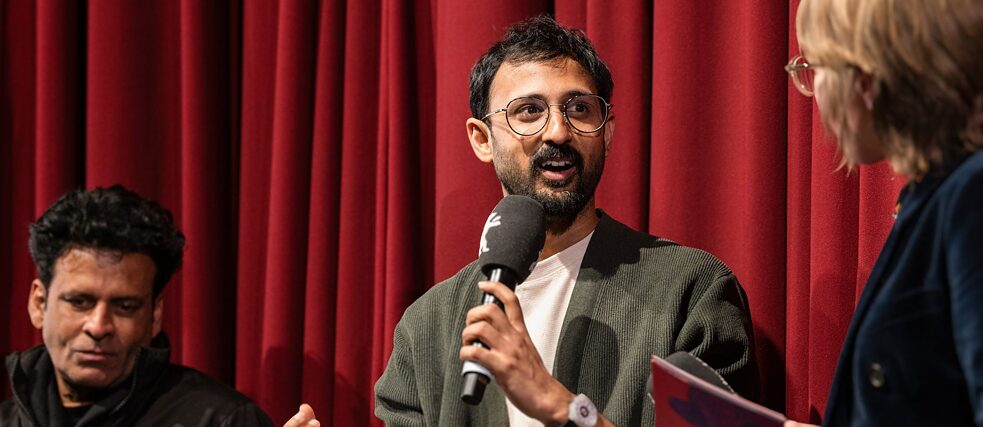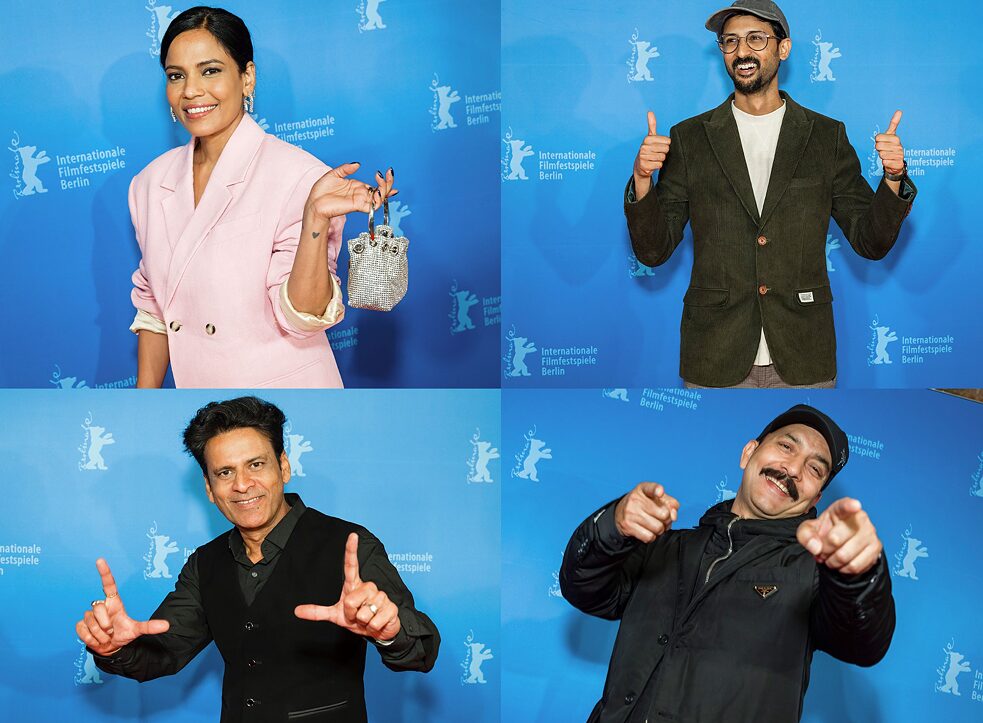Berlinale Bloggers 2024
“I want to break the cinematic space in a way that expands it.”

Raam Reddy, whose "The Fable" premiered in the Encounters section of the 74th Berlinale has had an extremely busy week. “We have been having three screenings every day,” he says. The team including actors Manoj Bajpayee, Priyanka Bose, and Deepak Dobriyal chose to be present at all the screenings because, according to Reddy, “You need to get audience feedback early in your journey, that’s why it was important for me to be here.” He couldn’t ask for more: “The experience has been amazing, everything is sold out quickly, the audience watches the movie till the end of the credits, nobody leaves before the Q&A.”
By Prathap Nair
"The Fable" is a very stark departure from your first film "Thithi". What inspired you to transition to exploring more serious themes in "The Fable"?
That’s just how I like to live - I like to keep moving and exploring themes. Thithi was a funny film with a serious-ish ending. I thought this time I would make a serious film and see how that goes. Can I hold a narrative thread that is gripping and suspenseful, yet has these magical elements walking through it? I played around with layers, and I tried to hit complex notes. I wanted to challenge myself, try to also connect things with actors and non-actors, and combine as many elements of life as I could within a single narrative. "The Fable" is a result of that.
Where did "The Fable" originate from?
I wrote my first novel when I was 19 and that involved elements of magical realism - from there Thithi happened and then "The Fable". Magical realism has always been very core to my work and that excites me as an artist. I want to break the cinematic space in a way that expands it. That’s what I like to do and it’s part of my trademark, almost. "The Fable" was a big canvas on which I tried to do the same thing.
There are a lot of unfinished threads in the film, you seem to have left a lot of easter eggs. This goes against the kernel of how storytelling is done in Indian films. What is your take on this?
As soon as art becomes didactic and try to get preachy, you’re limiting it by encapsulating it. The whole idea of magic realism is the idea of wonder: The idea of keeping things open to possibilities, and leaving room for this sense of wonder to flourish. For example, the first scene in the movie opens with a mundane shot but concludes with an unforeseen twist. Keeping that sense of wonder and openness, I believe is key to the human condition. That is important to me, and I think it’s far more captivating to allow space for varied interpretations in art.
Who are your favourite authors specialising in magical realism?
Salman Rushdie, Gabriel Garcia Marquez, Haruki Murakami and Franz Kafka. During my time at the Prague film school, I lived near Kafka’s grave. I frequented his gravesite to imbibe the creative spirit of Kafka.
Tell us about your impressions of Berlin and your first Berlinale.
Berlin is an incredible city - very alive and vibrant. It’s brilliant in some ways, and brave in the other. While I haven't fully explored the city yet, the glimpses I've seen of its artistic milieu reveal richness beyond compare. It’s thrilling to be a part of it.
Berlinale is much bigger than I had ever imagined. It’s a massive celebration of cinema, bringing together incredibly warm and beautiful audiences with the business of films. It is a solemn and significant task. As a premiere destination, I couldn’t have asked for anything better!
How do you think festivals like Berlinale foster cross-cultural exchanges between India and Germany?
This year, there are seven feature films and short films from India, and then there is the Berlinale Talents section. Germany has been open and receptive to Indians, providing them with an open platform to share their cultural narratives, and fostering meaningful cross-cultural dialogues. Even though we are different as countries and people, cinema serves as a unifying thread. I feel extremely welcome and deeply encouraged to continue my creative endeavours.
About the author
Prathap Nair is an independent cultural journalist based in Düsseldorf, Germany, who covers the Berlinale for major Indian publications.

